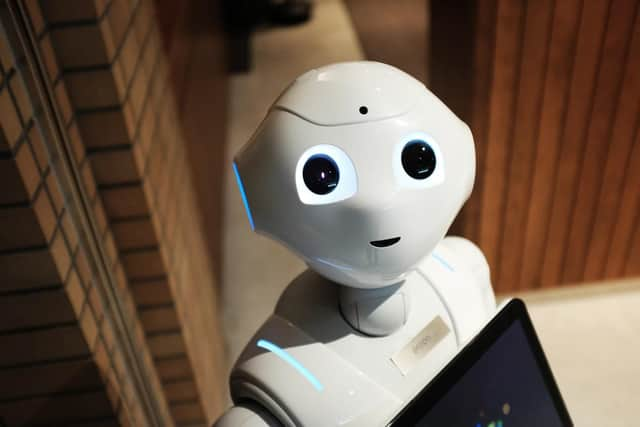Doncaster revealed as the NUMBER ONE town where robots are set to replace workers
and live on Freeview channel 276
By analysing 20 million jobs from around the country, ElectricalDirect discovered which roles are most likely automated, and which areas relied most heavily on those roles for employment.
The rise of AI poses an existential threat to the UK jobs market, as it starts to make a large number of jobs a thing of the past. It’s an inevitable and controversial change to the way our economy works, which has only been sped up by the forced automation brought on by Covid, as businesses were limited in their ability to have customer-facing roles.


Advertisement
Hide AdAdvertisement
Hide AdDoncaster is joint top on the list of the places where there is the highest number of jobs at risk of a robot takeover. This is due to the high number of roles requiring minimal training and involving routine tasks which would be carried out quicker by a robot.
As the place most likely to see its workforce replaced by automation, Doncaster has a shocking level of 50 per cent of its jobs at risk. Wigan joins Doncaster at 50 per cent followed by Sunderland close behind at 49 per cent.
It’s the capital where jobs are safest from the machines. London has only 33 per cent of its jobs at risk of automation due to the nature of the majority of the roles. While 33 per cent is not insignificant, it is at a much lower risk than other areas of the UK.
Of the specific roles most likely to be replaced, waiters/waitresses top the list by having a 72.81 per cent probability of being replaced by robots. Food service and hospitality industries are the most likely to be hit hard by the rise of automation, with the introduction of touch screen menus and instant contactless payment methods.
Advertisement
Hide AdAdvertisement
Hide AdSupermarket shelf stackers come in second, facing a 71.7 per cent of automated replacement, while shop floor retail assistants face a 70.69 per cent chance of replacements. This in an industry already rocked by technology, through the rise of online retail. Stores such as Amazon Fresh already function without tills, and therefore without cashiers.
In these confusing and worrying times, local journalism is more vital than ever. Thanks to everyone who helps us ask the questions that matter by taking out a subscription or buying a paper. We stand together. Liam Hoden, editor.
Comment Guidelines
National World encourages reader discussion on our stories. User feedback, insights and back-and-forth exchanges add a rich layer of context to reporting. Please review our Community Guidelines before commenting.
